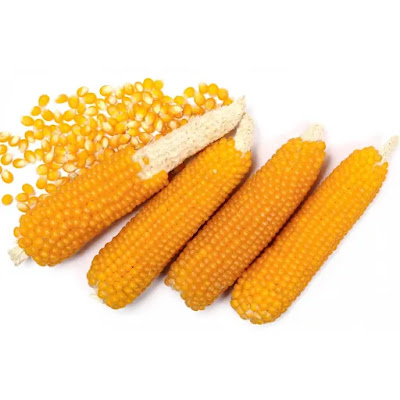Popcorn as the name suggests is a type of maize that pops when heated. Its unique popping ability has made it a cherished snack enjoyed by people all around the world.
 |
Traditionally,
maize farming has been a staple in Kenya and in the quest for
diversification and higher returns, we have farmers who are turning their attention to
popcorn, a variant of maize specifically cultivated for its popping quality.
The rise of popcorn farming in Kenya can be attributed to factors such as its
growing demand both domestically and internationally, its low-calorie and high
fiber content and its adaptability to Kenya’s conducive climate and fertile
soils.
Popcorn Snack
In Kenya,
several varieties of popcorn are cultivated, each with its own unique
characteristics suited to different agro-ecological zones. Some of the popular
varieties of popcorn cultivated in Kenya include butterfly, mushroom, and rice
popcorn. These varieties vary in kernel size, shape, and popping
characteristics, allowing farmers to choose the most suitable option based on
factors such as soil type, climate, and market demand.
Popcorn
farming in Kenya typically follows similar cultivation practices to traditional
maize farming. Its planting entails ploughing the land followed by planting the
seeds either manually or using mechanized equipment such as planters. Adequate
spacing between rows and proper control are essential to optimize crop growth
and yield. In regions with irregular rainfall partners, supplementary irrigation
may be necessary to manage the issue of moisture stress.
Harvesting
Harvesting
of popcorn usually occurs when the kernels have reached physiological maturity. Unlike
field corn, which is harvested for grain, popcorn is harvested for its dried
kernels. The ears of popcorn are typically handpicked from the stalks and
allowed to air dry in the field or in well-ventilated storage facilities.
Benefits
that come with popcorn farming.
Popcorn
farming offers numerous benefits to the farmers like,
·
Higher Returns
Popcorn
generally commands a higher price in the market compared to regular maize,
providing farmers with increased income potential.
·
Employment opportunities
The
expansion of popcorn farming has created opportunities along the value chain,
from cultivation and harvesting to processing and distribution.
Market
opportunities.
The
demand for popcorn in Kenya is driven by both domestic consumption and export
markets. Locally, popcorn is a popular snack enjoyed in households, cinemas,
and entertainment venues. Supermarkets and malls are offering the greatest
local markets in Kenya by supplying the popcorn seeds and snack as well. At the moment, one kilogram of popcorn seeds is going for about ksh400-ksh500 in local supermarkets in Kenya.
Internationally,
Kenyan popcorn has gained recognition for its quality and flavour, opening
export opportunities to markets in Europe, North America, and the Middle East.





1 comment:
Thank you for the info.where can I get certified seeds for planting
Post a Comment